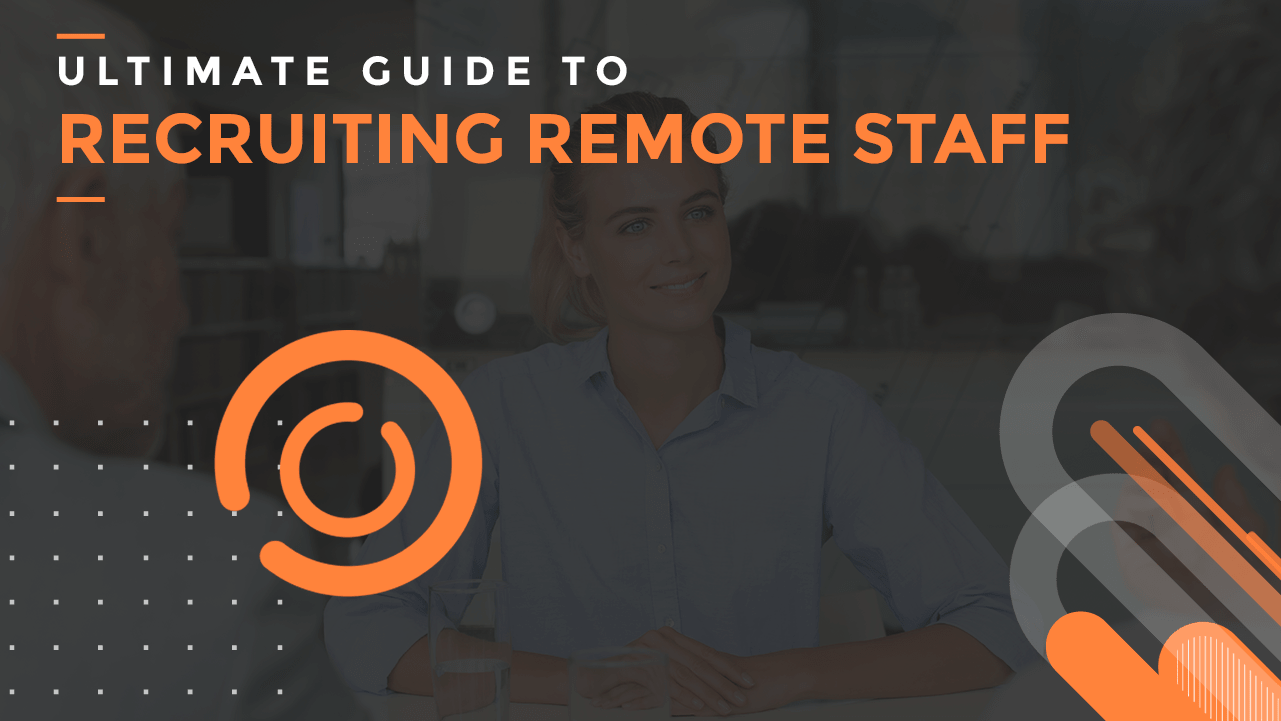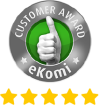
Evie Jenkins
Ultimate guide to recruiting remote staff
- May 10, 2021
- , 10:22 am
- , Advice for Employers
Remote working has become increasingly popular for businesses across a host of industries, and it offers numerous benefits not just for employers but also for staff. The rise in collaborative technology has made it easier than ever to work as part of a team from any location in the world.
In our ultimate guide to remote recruitment, we’ll cover the characteristics and skills that remote employees should have, how to hire remote candidates, and tools that remote teams can benefit from.
Benefits of hiring remote staff
For businesses, hiring remote staff can help to cut costs such as equipment or office costs. In fact, the savings can be so vast that some businesses have opted to work entirely remotely, enabling them to cut these costs entirely.
Hiring remotely also enables companies to expand their talent pool considerably, as you’re not restricted to candidates who live within a set distance of the office. For firms who are seeking candidates for niche roles or requiring a specific skillset, this makes finding the ideal employee much easier.
In fact, a survey conducted by tech platform Dice found that tech job seekers were primarily looking for two things when searching for a new role – healthcare benefits and the ability to work remotely. And with the demand for tech roles expected to rise by over 20% by 2028, being able to offer remote working to new candidates could make the hiring process easier.
Studies have shown that remote staff are actually more engaged and productive than in-house employees, with a Global Workplace Analytics study finding that 53% of remote workers are more likely to work overtime compared to just 28% of in-office staff.
The flexibility that remote working offers to employees can be an advantage, helping to improve morale and enabling them to create a better work-life balance. This in turn can improve employee retention rates and remove the risk of losing staff to relocation.
Qualities to look for when hiring remote employees
As with any hire, there are certain qualities you need to look for when assessing applicants for a remote position.
Communication skills – Strong communication skills are at the core of any effective team, and it’s one of the top soft skills that employers should be looking for when hiring any employee, but particularly for remote roles. Remote employees need to be responsive and able to maintain regular contact with their colleagues in order to foster effective collaboration.
Organisation skills – Since remote staff will be working unsupervised, they need to be able to stay on top of their to-do lists and manage projects efficiently. Applicants need to be able to organise their time to ensure everything is completed to deadline and be able to adapt as new tasks come up.
Technical skills – In addition to any job-related tech skills, remote workers need to be tech savvy in general to be able to adapt to collaborative tools, such as Slack or Google Docs. Part of the recruitment process should be gauging the skill level for the tools used within the team to ensure new hires can get started quickly.
Reliability – Without seeing them every day and ensuring they’re staying productive, it’s vital that businesses can rely on the people they hire. It’s a difficult characteristic to assess in an interview setting, but it’s important to hire people that you can trust to do what they say they can.
Self-motivation – Remote employees need to be self-motivated to get through tasks without someone monitoring their progress each day, as well as being proactive to resolve issues as they arise. Are they autonomous and happy to work with minimal supervision?
Flexibility – Issues come up all the time that are unexpected and can’t be planned for, especially in a tech role, so you need to be able to rely on your staff to adapt accordingly. A remote hire needs to be able to work effectively with people in different teams and potentially different time zones, so flexibility is key.
Responsiveness to feedback – There may be occasions when an employee’s work isn’t quite up to the standard the company expects or a project hasn’t gone to plan. In these circumstances, you may need to be able to provide feedback or constructive criticism, so it’s important that the person you hire is able to take that feedback on board and react appropriately.
How to prepare for remote recruitment
While hiring remote staff doesn’t require a complete departure from your standard onboarding process, there are some considerations to make before you start recruiting to help minimise pitfalls in the recruitment journey.
Work with contractors
If you’re new to the world of remote hiring, it can be a daunting prospect for your business. But hiring remote contractors can be a great way of seeing if working with remote employees is a good fit for your company and processes, as well as giving you valuable experience when it comes to hiring someone on a permanent basis.
Determine the remote position you’re hiring for
The first step to hiring a remote employee is to work out the type of role you’re hiring for – will they work remotely 100% of the time? Do you need them to work full-time or part-time? Do you need the employee to be able to work from different offices on occasion? These questions will help you establish what the role will look like to help you create a policy for remote working.
Are there specific time zones you need to hire in?
Time zones are important for effective collaboration in the business, in terms of video calls and meetings, as well as real-time conversations on projects. While there are tools that you can use to allow for asynchronous collaboration, it can be beneficial to be able to hop on a call with an employee if you need to, so weigh up how important this is for the role and the team.
Pick the tech stack
It’s crucial that each member of the team can work productively, no matter where they’re situated, so they need to be proficient in the tools your business uses day to day. From video conferencing and chat applications to project management and file management tools, and specific tools for the role, make sure the tech stack is chosen before you start interviewing candidates.
Where to look for remote candidates
Over the past 5 years, LinkedIn have reported a 78% increase in job postings highlighting work flexibility, with a large spike in the last 3 years. Companies who can provide this benefit are at an advantage over those who don’t.
But knowing where to look for remote candidates can be difficult, especially if you’re recruiting for tech roles such as DevOps positions where recruitment can be challenging. In addition to your own company site and blog, there are other ways to recruit remotely and find new candidates for open positions.
Employee referrals
One of the most effective ways to hire remote employees is to look to your existing staff for referrals. In fact, research suggests that referrals are one of the best ways to hire new staff, reducing your recruitment time and helping to save the business money on agency fees and advertising costs.
Social media
A large proportion of businesses now use some form of social media to recruit new candidates and advertise for positions, and a quarter of all job seekers use social media to find new roles. The likes of LinkedIn, Facebook and Twitter can be a great way of advertising remote job postings and sharing new vacancies.
Remote job boards
It can also be beneficial to look beyond the usual networks such as LinkedIn and find specialist platforms where niche positions are concerned, such as GitHub or Hacker News. In addition to including remote working within the job description, there are also sites you can look to when seeking prospective employees.
Questions to ask when interviewing candidates for a remote role
The interview process for hiring remote candidates differs slightly than for in-person applicants, in part because there are specific skills and qualities that remote staff need to have in order to work successfully. With this in mind, it makes sense to tailor the screening process accordingly. There are some questions you should ask when interviewing potential remote staff:
What skills are important for remote workers?
A practical remote worker will know that the answer to this question is more than simply being organised. An applicant should be able to highlight a more specific skillset such as taking a proactive approach to tasks and projects, strong problem-solving skills and excellent communication.
Does the concept of remote working raise any concerns?
This question allows you to gauge their feelings around working remotely, particularly if this is the first time they will be working away from the main office. There are always going to be challenges with remote working, so if the candidate doesn’t acknowledge these and simply glosses over the question, that could be a cause for concern.
How do they stay productive?
It’s important that the applicant won’t find being at home too distracting, so it can be useful to listen to the ways that they plan to stay productive and organised when they’re at home, and how they will overcome any distractions.
Ways they avoid miscommunication
Communication is one of the most important skills to have as a remote worker, as they won’t be able to read body language or tone of voice like they would in-person. Likewise, being part of a distributed team means there’s the potential to miss conversations or key pieces of information. It can be helpful to understand how the applicant will overcome this problem and how they will address it if it happens.
When do they work best?
One of the key benefits to working remotely is being able to determine your own schedule. Not everyone works efficiently during the standard 9-5 working hours, so it can be useful to know when the applicant works best and how they would manage deadlines and projects with this in mind.
Contact us
Remote recruitment is on the rise and more businesses are seeing the advantages that it can provide, in terms of adaptability, access to skilled individuals and the money it can save. If you need help sourcing skilled remote staff for tech positions, ClearHub can help. Get in touch with us today to learn more.





